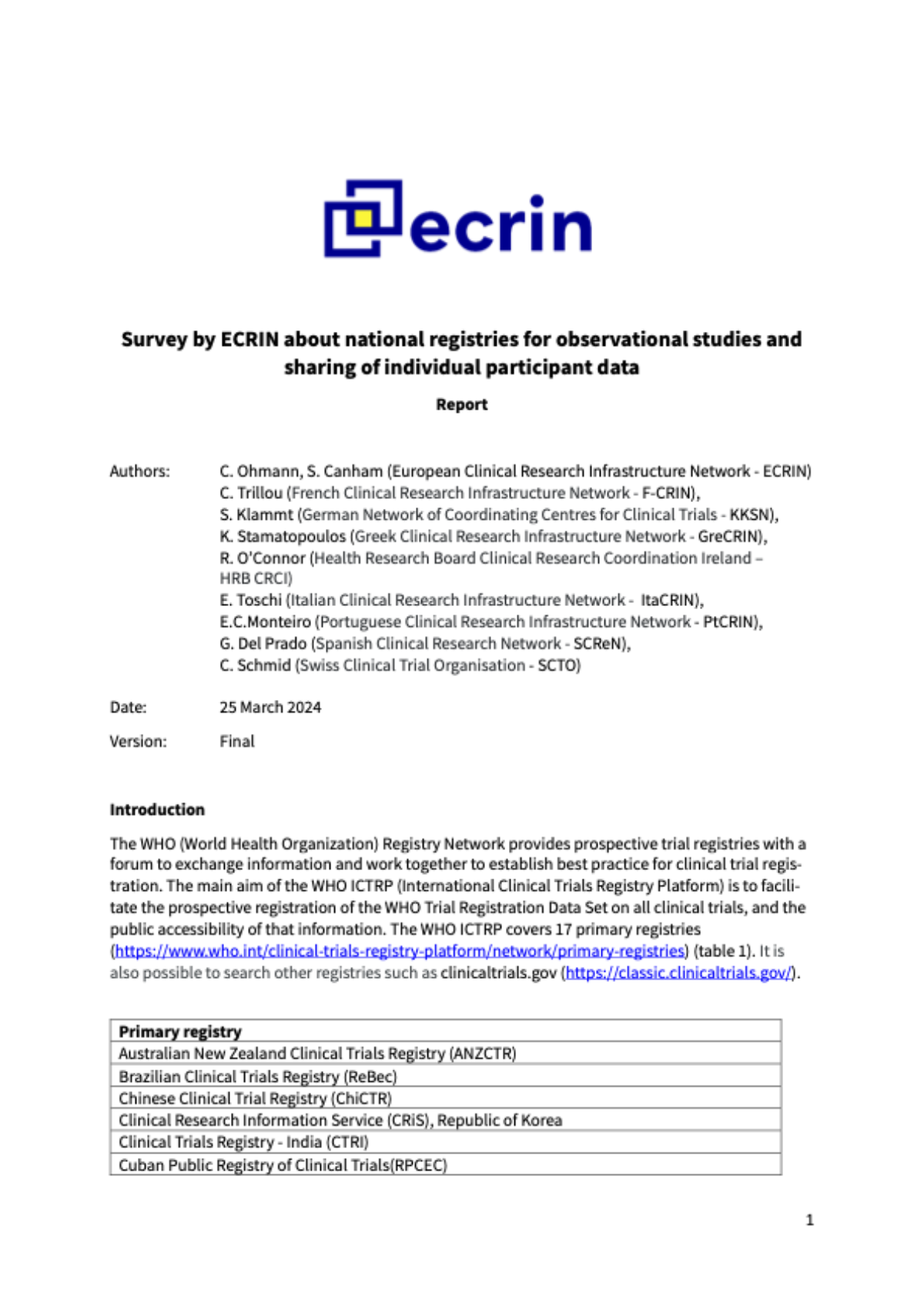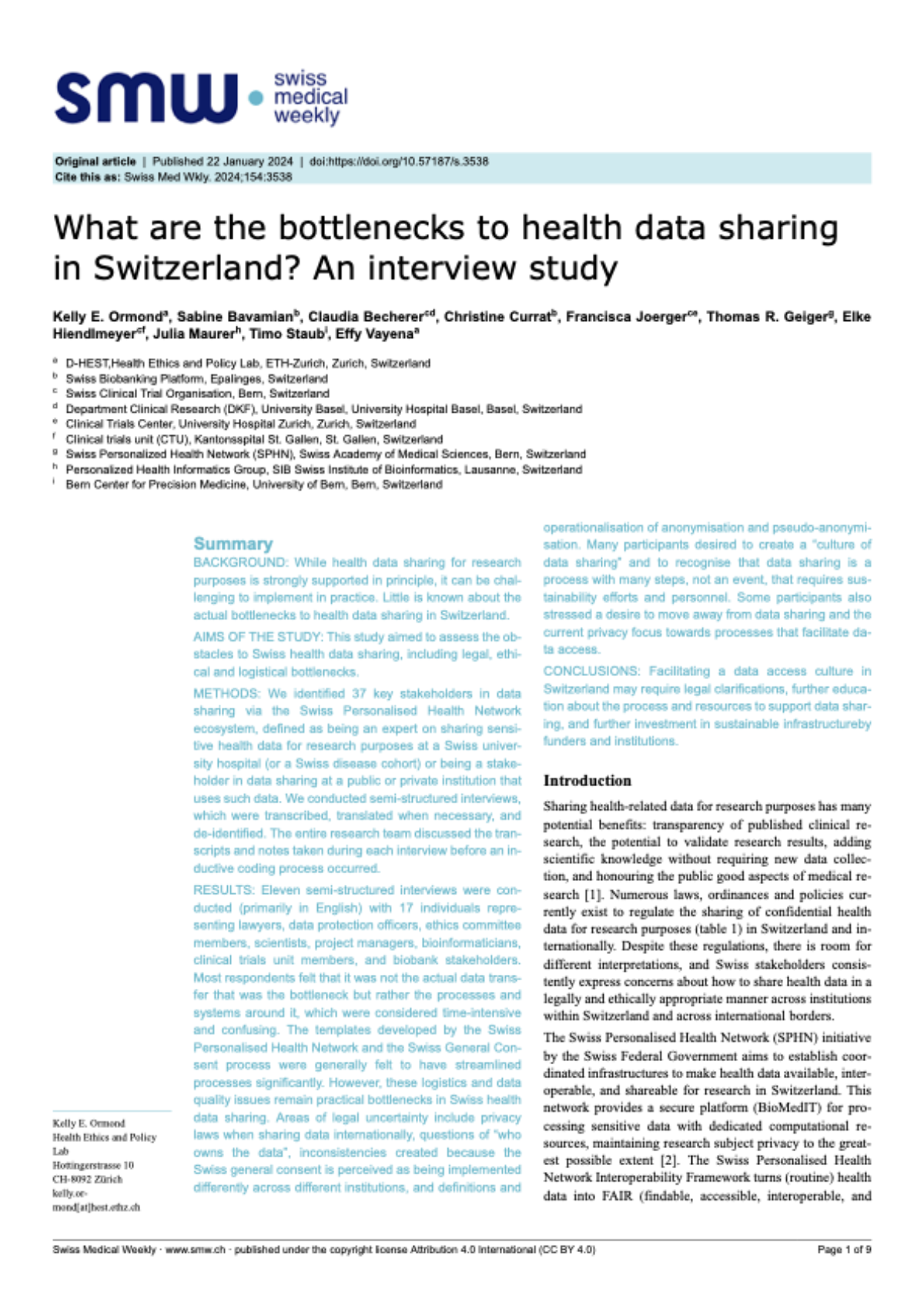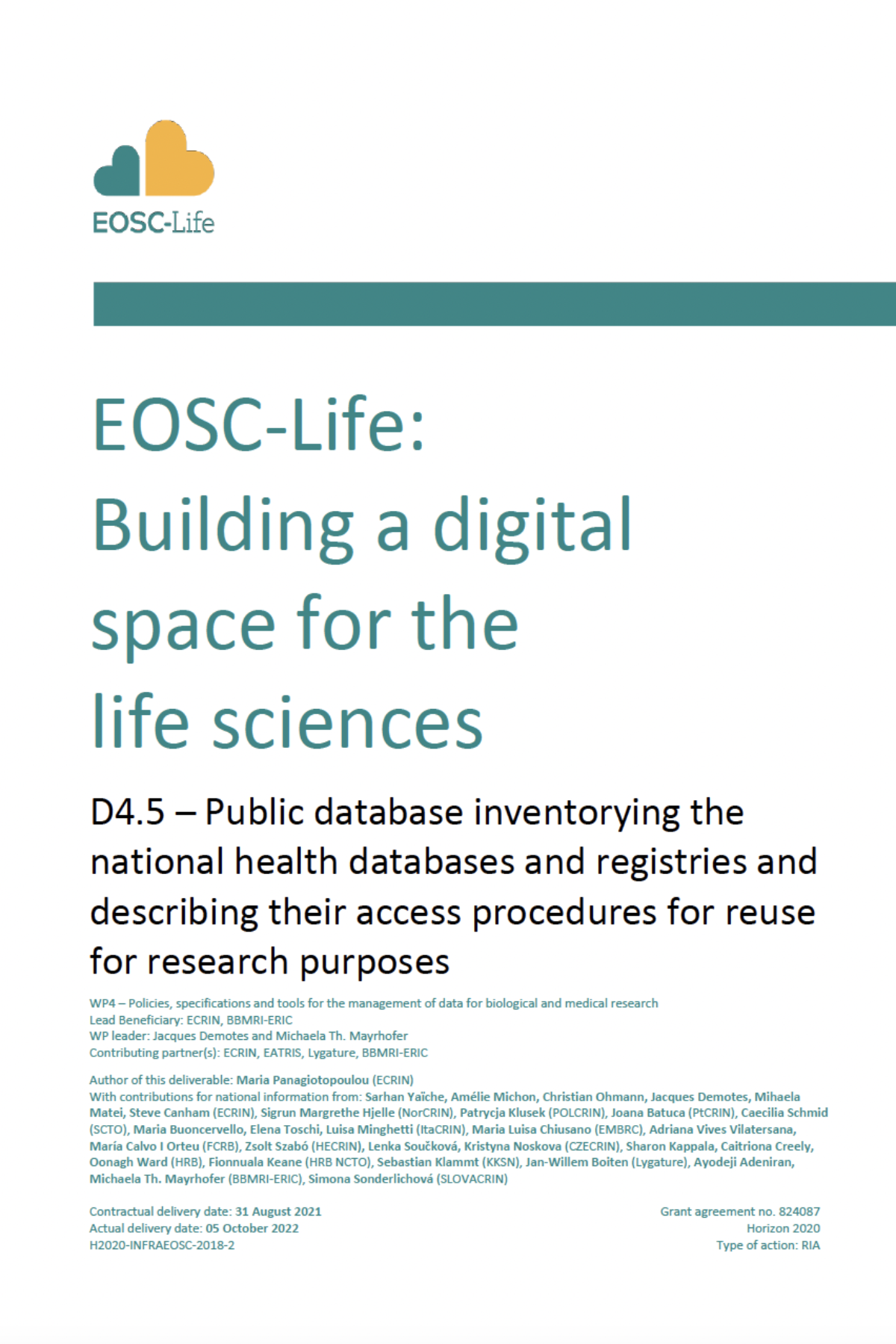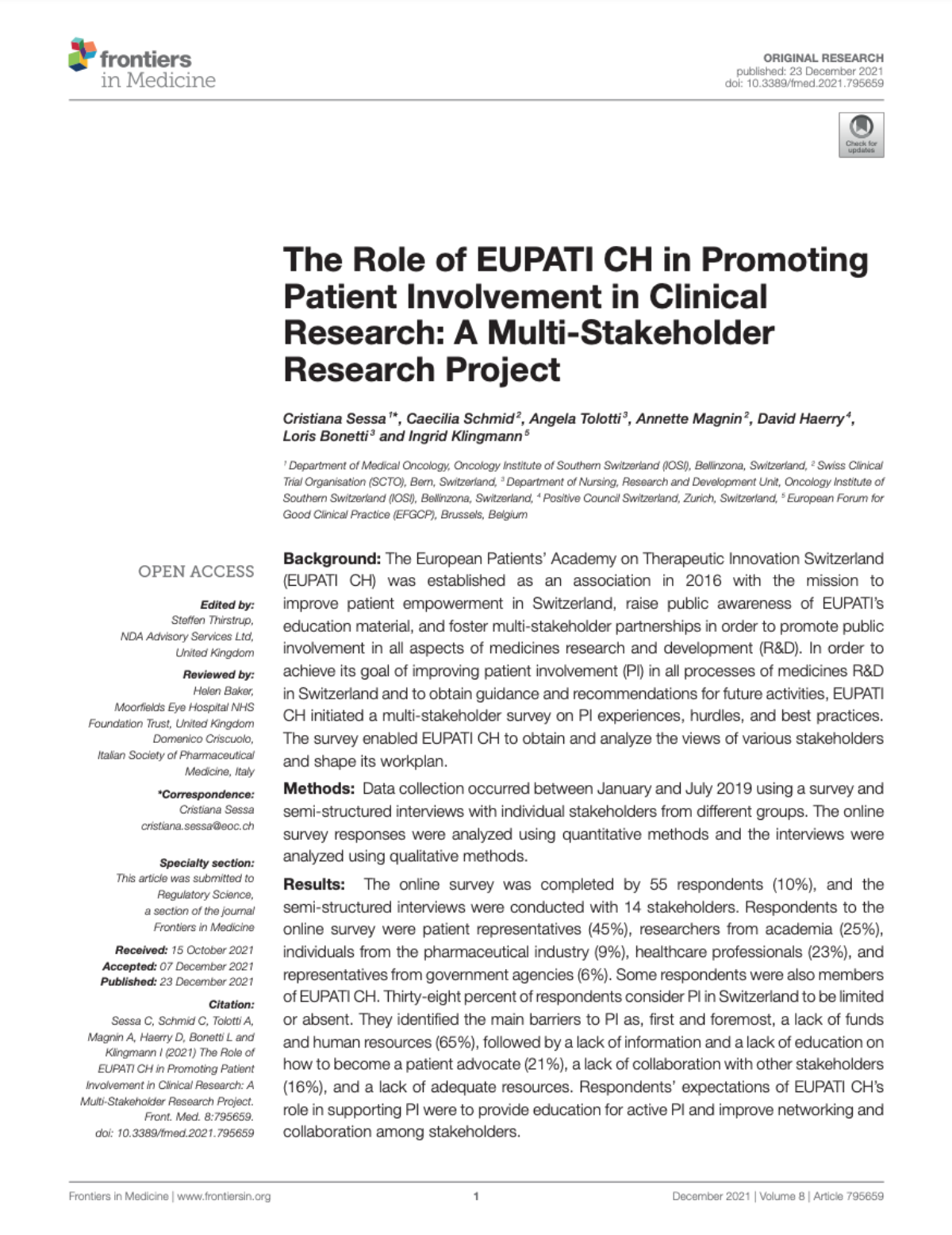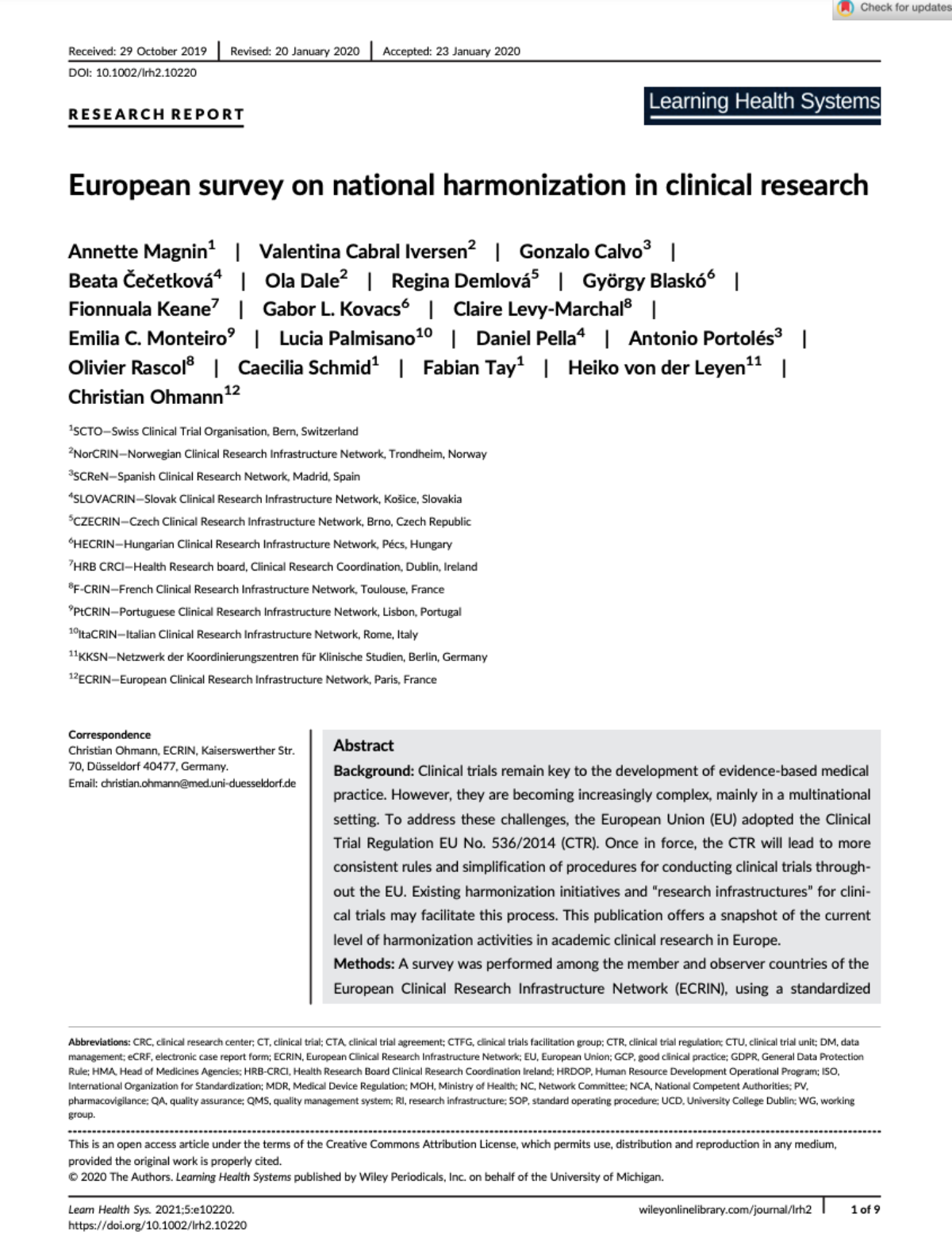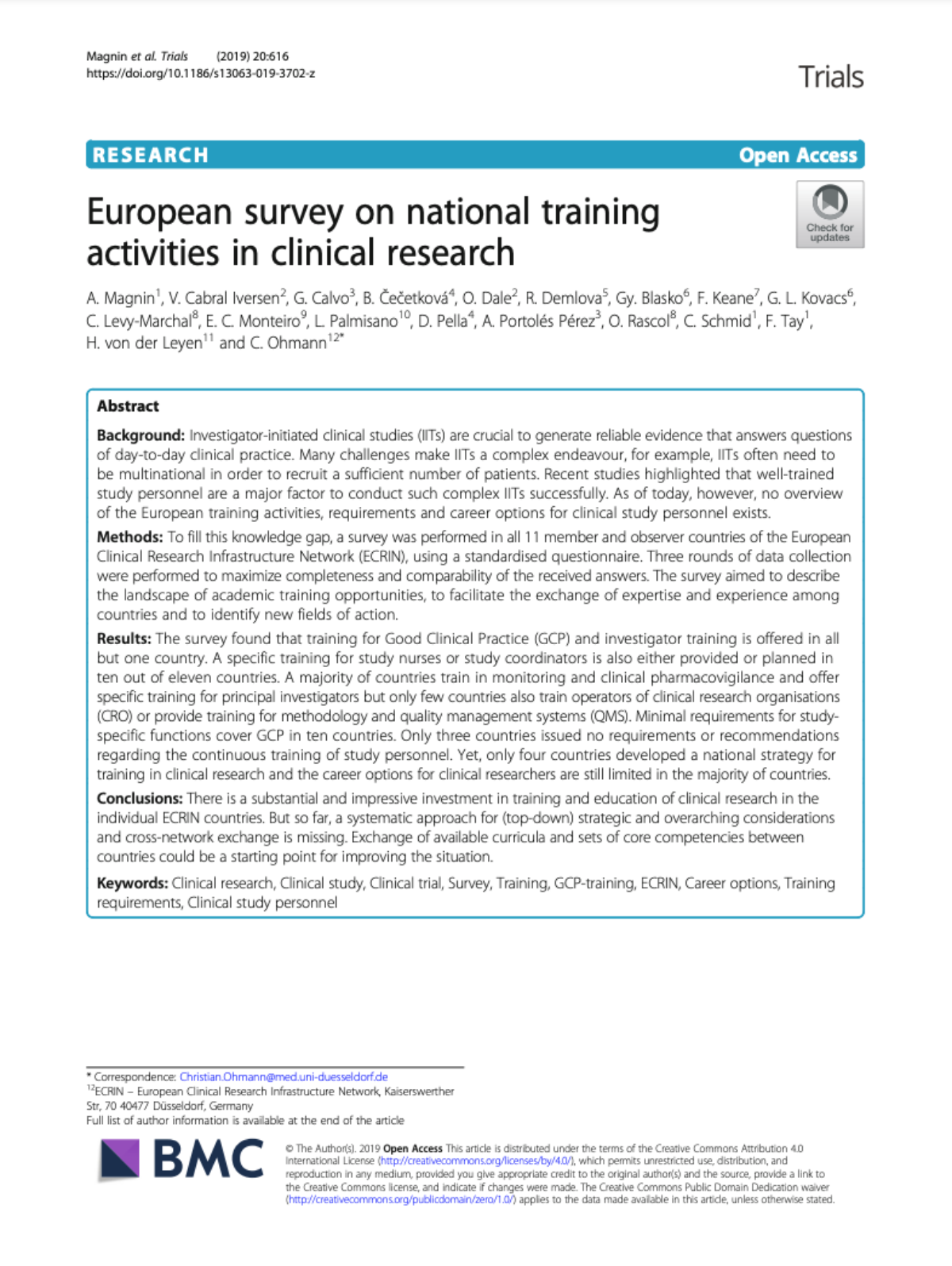The SCTO regularly contributes to scientific publications as a co-author. Published articles are available below.
Scientific papers
Survey by ECRIN about national registries for observational studies and sharing of individual participant data
Clinical trial registries are established tools widely used in clinical research. Registration rates of clinical trials have increased, however, there remains a substantial underreporting of observational studies. A survey across eight European countries belonging to the European Clinical Research Infrastructure Network (ECRIN) was conducted to assess the status of national developments with respect to registries for observational clinical trials. The SCTO actively contributed to this survey, which was additionally targeted at the needs and requirements for sharing of individual participant data (IPD) from clinical trials/clinical studies.
Six out of the eight countries included in the survey reported on national registries activities for observational or health studies. The authors of the survey suggested that a first step of improvement could be to integrate the national registries with ECRIN’s clinical research Meta Data Repository (crMDR), covering all primary registries of the World Health Organization’s International Clinical Trials Registry Platform (ICTRP) plus ClinicalTrials.gov, Pubmed and some repositories for sharing of IPD.
Read the complete study Survey by ECRIN about national registries for observational studies and sharing of individual participant data, Christian Ohmann et al., Zenodo, published on 25 March 2024.
New paper published co-authored by SCTO: What are bottlenecks to health data sharing in Switzerland? An interview study.
Sharing health data for research requires the alignment of numerous factors, including regulation, access, interoperability, standardisation, and collaboration between researchers and patients. In Switzerland, like elsewhere, this process encounters various hurdles and bottlenecks, not only at the international level or with third parties but also within Swiss Universitiy Hospitals.
The recently published article, featured in Swiss Medical Weekly, sheds light on the legal, ethical, and technical challenges surrounding data sharing in Switzerland. The interview study was co-authored by our SCTO Regulatory Affairs Platform members Claudia Becherer and Elke Hiendlmeyer, in collaboration with several organisations including the Health and Policy Lab at ETH Zurich, the Swiss Personalized Health Network (SPHN), the Swiss Biobanking Platform and the Bern Center for Precision Medicine.
The majority of stakeholders surveyed in semi-structured interviews believe that the most complex and confusing aspects of data exchange do not lie in the actual data transfer itself, but in the associated processes and systems. The uncertainties relate to data protection laws, data ownership issues and processes for anonymisation and pseudonymisation. The study concludes that facilitating data access and exchange in Switzerland primarily requires further legal clarification, training and investment in sustainable infrastructures.
What are the bottlenecks to health data sharing in Switzerland? An interview study by Kelly E. Ormond et al., published on 22 January 2024 im Swiss Medical Weekly
EOSC-Life Public database inventorying the national health databases and registries and describing their access procedures for reuse for research purposes
The digitisation of healthcare has brought new opportunities to complement and enhance the data traditionally utilised in regulatory decision-making. As the title indicates, the report delivers an inventory of national health databases and registries covering 15 European countries. For each country the reader can find information on the national healthcare system, a list of health databases and registries, their description (or links to websites where this description can be found) and information on data access for research purposes.
Read the complete article EOSC-Life Public database inventorying the national health databases and registries and describing their access procedures for reuse for research purposes, Maria Panagiotopoulou et al., Zenodo, published on 5 October 2022.
The Role of EUPATI CH in Promoting Patient Involvement in Clinical Research: A Multi-Stakeholder Research Project
The European Patients' Academy on Therapeutic Innovation Switzerland (EUPATI CH) was established as an association in 2016 with the mission to improve patient empowerment in Switzerland, raise public awareness of EUPATI's education material, and foster multi-stakeholder partnerships in order to promote public involvement in all aspects of medicines research and development (R&D).
In order to achieve its goal of improving patient involvement (PI) in all processes of medicines R&D in Switzerland and to obtain guidance and recommendations for future activities, EUPATI CH initiated a multi-stakeholder survey on PI experiences, hurdles, and best practices. The survey enabled EUPATI CH to obtain and analyse the views of various stakeholders and shape its workplan.
Read the complete article The Role of EUPATI CH in Promoting Patient Involvement in Clinical Research: A Multi-Stakeholder Research Project, Cristiana Sessa et al., Frontiers in Medicine, published on 23 December 2021.
European survey on national harmonisation in clinical research
Clinical trials remain key to the development of evidence‐based medical practice. However, they are becoming increasingly complex, mainly in a multinational setting.
The survey performed among the member and observer countries of ECRIN aimed to describe the harmonisation of academic clinical research processes at national level, to facilitate the exchange of expertise and experience among countries, and to identify new fields of action.
Currently, the ECRIN member countries offer a very solid base and collaborative spirit for further aligning processes and exchanging best practices for clinical research in Europe.
Read the complete European survey on national harmonization in clinical research, Magnin et al., Wiley Online Library, published on 21 February 2020.
Training and education of clinical research in European countries substantial, yet lacking a systematic approach
There is a substantial and impressive investment in training and education of clinical research in the individual ECRIN countries. But so far, a systematic approach for (top-down) strategic and overarching considerations and cross-network exchange is missing. Exchange of available curricula and sets of core competencies between countries could be a starting point for improving the situation.
Read the complete European survey on national training activities in clinical research, Magnin et al., Trials journal, published in October 2019
What’s in a name? From 'subject' to 'participant'
Advisor Issue 445 special supplement, What’s in a name? From ‘subject’ to ‘participant’, ISSN 2041-3661, Canary Ltd, UK, www.canarybooks.com, published in July 2019
To contribute to the subject vs participant debate, send your views to info@brookwoodacademy.org (with the subject header "Participant debate") and join the discussion @SwissClinTrial.












